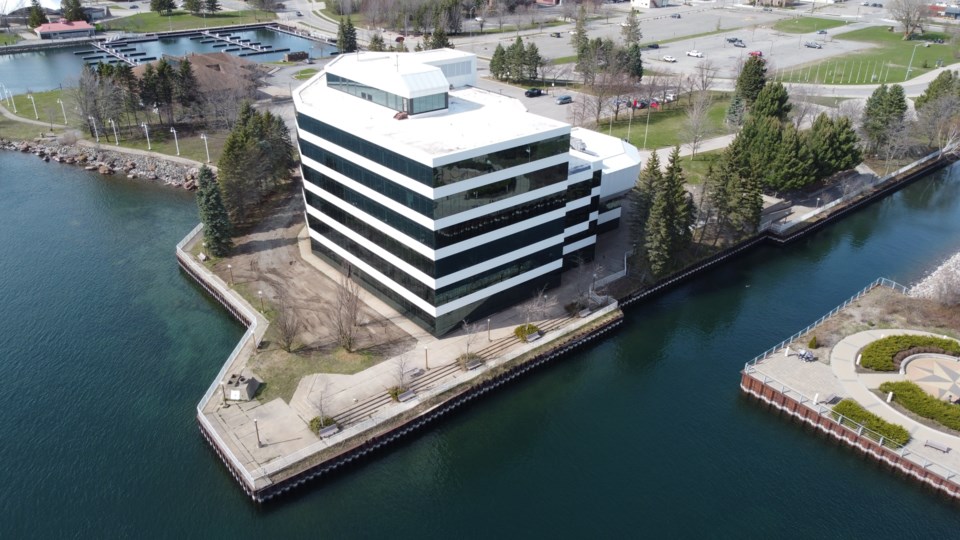An item that would normally have been approved in seconds occupied Sault Ste. Marie city council for 45 minutes tonight.
Council decided to approve an addition to the parks bylaw aimed at making homeless encampments illegal.
Just hours before tonight's meeting, former city solicitor Nuala Kenny emailed Mayor Matthew Shoemaker and councillors, warning that prohibiting encampments in city parks would be both unconstitutional and a "gross moral conscience violation."
Kenny, who is now executive director of the Algoma Community Legal Clinic, said: "It is with great solemnity that we are advising, if the bylaw is passed we shall have no option but to appeal."
"We are living at an historic time – a time when real poverty is seeping into every corner of every community. It cannot be legislated away. The answers will only be borne of compassion, collaboration and kindness. Please choose to be on the right side of history," she added.
Jeffrey King from the city's legal department told councillors that he was confident his addition to the bylaw would withstand any court challenge.
As SooToday first reported last Thursday, the change was presented to city council as part of a list of 'housekeeping' amendments that normally wouldn't include major policy changes and normally would be approved without comment.
"I think it is a necessary last step," said Mayor Shoemaker.
Shoemaker said he's satisfied that using city bylaw officers or police to evict homeless people would be "a last step in enforcement."
"I think that this bylaw achieves... what we all want to see, which is to ensure the folks who need it get the help they need."
"I often hear that being homeless is not a crime, but the proposed bylaw changes do not reflect that," said Ward 3 Coun. Angela Caputo.
"If this passes, the city will be directly contributing to the criminalization of homelessness.
"By deeming all municipal lands illegal to seek shelter on, the city would be either pushing homeless folks to private property, which would lead to trespassing charges, or pushing them further into obscurity in bushes or other hidden areas," Caputo said.
"Homeless folks use high-visibility areas for safety. Being seen means it is more difficult for you to go missing."
"With such a large percentage of the homeless population identifying as Indigenous, I am... concerned that these changes would contribute to an increase in the missing Indigenous women and girls epidemic."
Chief administrative officer Malcolm White said he didn't think the addition to the parks bylaw will change the level of bylaw enforcement in Sault Ste. Marie.
"I think what's getting lost somewhat in this discussion is the programming and outreach that does already occur," White said.
"Enforcement using our bylaws is seen as a last resort."
When a tent encampment was set up near the civic centre in October 2021, White said that he and then-mayor Provenzano visited the site two or three times a day.
"Not all the people there were truly homeless," White said.
"We recognize that homelessness is a problem, in this community and elsewhere. The solutions to the problem are through outreach, through social services and through other services that people who aren't experiencing homelessness require.
"It really isn't a type of response where you just need to get people housed... They often need more than that and that's the approach."
Ward 2 Coun. Luke Dufour said the Sault has worked extraordinarily hard to keep ahead of the homelessness issue.
"The solution to homelessness is not criminalization but neither is it enabling the status quo.
"The status quo, where we see encampments popping up across Ontario, is a complete failure of all three levels of government in Canada," said Dufour, who is also chair of the District of Sault Ste. Marie Social Services Administration Board.
"Instead of just talking about the right to housing that people have, we need to be talking about the right to health care and drug and mental health and addictions treatment that people have.
"Fundamentally if we're going to just talk about city bylaws in terms of a solution to stopping this crisis, we're going to miss the point.
"The point is that people need mental health and drug addiction treatment as well as affordable housing. Given our experience with previous encampments in Sault Ste. Marie and simply housing those people without adequate health care and mental health and addictions supports, it is not successful.
"Housing alone is not the solution. Space alone is not the solution for this problem.
"If we were to embrace large-scale public encampments, we will be turning back the clock on our success on this file in Sault Ste. Marie and we would be spending valuable public dollars addressing the symptom of the problem instead of the root cause," Dufour said.
"That's why I'm supportive of what I truly know to be housekeeping amendments. And why we'll continue to work tireless on advocating for more investment going at the root causes of homelessness in our community."
